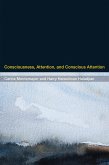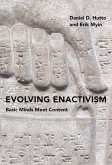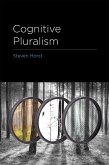In this book, Kristina Musholt offers a novel theory of self-consciousness, understood as the ability to think about oneself. Traditionally, self-consciousness has been central to many philosophical theories. More recently, it has become the focus of empirical investigation in psychology and neuroscience. Musholt draws both on philosophical considerations and on insights from the empirical sciences to offer a new account of self-consciousness—the ability to think about ourselves that is at the core of what makes us human.
Examining theories of nonconceptual content developed in recent work in the philosophy of cognition, Musholt proposes a model for the gradual transition from self-related information implicit in the nonconceptual content of perception and other forms of experience to the explicit representation of the self in conceptual thought. A crucial part of this model is an analysis of the relationship between self-consciousness and intersubjectivity. Self-consciousness and awareness of others, Musholt argues, are two sides of the same coin.
After surveying the philosophical problem of self-consciousness, the notion of nonconceptual content, and various proposals for the existence of nonconceptual self-consciousness, Musholt argues for a non-self-representationalist theory, according to which the self is not part of the representational content of perception and bodily awareness but part of the mode of presentation. She distinguishes between implicitly self-related information and explicit self-representation, and describes the transitions from the former to the latter as arising from a complex process of self-other differentiation. By this account, both self-consciousness and intersubjectivity develop in parallel.
Dieser Download kann aus rechtlichen Gründen nur mit Rechnungsadresse in A, B, BG, CY, CZ, D, DK, EW, E, FIN, F, GR, HR, H, IRL, I, LT, L, LR, M, NL, PL, P, R, S, SLO, SK ausgeliefert werden.









